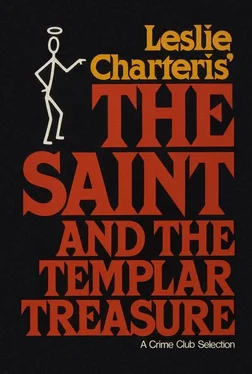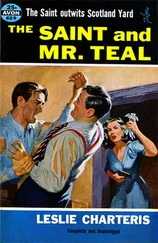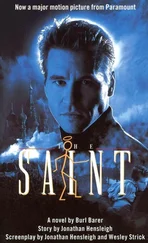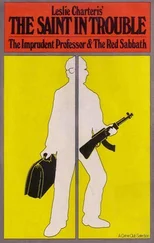The professor was no longer looking at the Saint but at the casket. His hands were clasped at his waist and the original excitement in his voice when he had revealed his discovery had given way to the dry monotone of a don addressing his students on an academic puzzle.
“There is no reason why he should not have escaped the wrath of the other disciples and later told his story to someone who wrote it down. Judas has always been an enigma, yet in many ways he is the second most important person in the Gospels. Without Judas there might have been no Crucifixion, without a Crucifixion no Resurrection, and without a Resurrection no Christian religion. In his own way, he has a greater claim to sanctity than any of the other disciples.”
Simon was fascinated by the idea. “St. Judas and All Traitors? That sounds like a fun parish. How did you find it — from the map or the stone?”
Norbert visibly stiffened.
“So you know about the map, too,” he said slowly. “Well, I suppose it does not matter now... No, not from the map or from the stone, but from my own observations. I, Louis Norbert, discovered it. I did it all on my own. While he was chasing gold, I pursued truth. I solved the riddle the Templars left behind them. They were clever, clever enough to keep their secret for six hundred years, but not clever enough to fool me.”
The professor’s voice had tightened until it almost choked him. His hands clenched and unclenched spasmodically as he spoke, and his staring eyes seemed to look straight through the Saint. For the first time Simon felt the real force of an obsession.
“The stone and the map were deliberately left to mislead. Why do you think they left them where they might be found? They were useless. Anyone who found them would search for a hoard of loot but find nothing, while the real prize was under their noses all the time. In there!”
Norbert pointed to the sarcophagus and then stepped towards it. His shaking hands caressed the recumbent figure sculpted on it.
“It was mere accident that neither the map nor the stone were found when the Templars left, but those who followed knew all about the tomb and they ignored it. Just a tomb in a crypt, and then they blocked up the crypt and even forgot about that. It was left to me, me, to open the crypt again and ask the questions no one else had asked. Why was such a magnificent tomb hidden in a crypt? Why was it not in the chapel where all could see it? An important person’s tomb, but whose? There is no name on it. And why an altar at the foot of a tomb? To put something on. But what?”
Norbert grasped the corner of the sarcophagus beside the Crusader’s left foot and pushed hard. The whole top slid halfway back on invisible rollers to reveal the hollow interior of the base, big enough to have held a giant’s coffin, but now empty.
The professor chuckled.
“So simple, but so effective. And so safe. The Templars brought back many trophies from the Crusades, but this scroll was unique, and they kept it a secret. It was their treasure. They were accused of Devil worship, in the main it was a libel, but here at Ingare a cult must have developed around this unholy relic. And what greater prize for a Satanist than the words of the man who betrayed God?”
The Saint heard Norbert’s words and their meaning registered, but he was no longer consciously listening to the little man’s lecture. For a moment he was hardly aware of the present at all as his mind flooded with the images of the past.
He thought of the Knights whose name he carried going out to do battle, their ideals as bright as their armour, their standards billowing in the wind of the charge. Fighting and dying and winning respect and renown. But when the campaigns were over, when there were no more pilgrims to protect or battles to win or walls to storm, growing rich and complacent and eventually corrupt. Accepting a life of luxury and indulgence, playing politics, storing wealth, and then at last dabbling in strange heresies against the faith that had first inspired them.
Instantaneously he remembered his own beginnings — the ideals that had sent him and his own small band of crusaders out into a world grown stale and lifeless from what was called progress. Ideals they had fought for and one had died for. To deliver justice in a world that no longer understood the word. To wage their own private war against the men who grew bloated on the life-blood of the weak. Could it happen to him — a twentieth-century privateer akin to every soldier of fortune who had ever nailed his colours to the mast and set out to seek his destiny?
But that depressing prospect survived only a microsecond against the utterly gorgeous grandeur of the historic reality that had just exploded before his comprehension: a Templar treasure that could be truly priceless — and in ordinary terms completely unsaleable.
For a moment as his gaze swept over the lines of coffins he could wonder if one day he too would settle for a fading glory and the pleasures of the idle and the unconcerned. But only for that moment; and then he laughed. A deep, rich “to hell with it all” laugh. The sword was still bright, and ideal was still a spur, and the jest was magnificent. So there was no treasure, just the words of a traitor. Something for the academics and theologians to argue over while the rest of the world carried on — business as usual. And a Nobel Prize or something of that sort for somebody, perhaps Louis Norbert.
“Of course, Henri knows about this,” said the Saint.
“He refuses to believe it,” Norbert said. “He is still convinced of a treasure that can be counted or weighed and banked—”
At that same instant the key grated in the lock of the tunnel door. Before the startled professor realised what was happening he was engulfed in a whirlwind of action. The Saint killed the lamps, clamped a silencing hand over Norbert’s mouth, and in a continuation of the same hold threw them both down behind the tomb.
The door swung open and the beam of a powerful flashlight carved the darkness. The Saint peered cautiously around the farthest side of the tomb. Standing in the splash of light just inside the doorway was Mimette, and from the awkward way she stood with her hands behind her he could tell without seeing them that they must be tied together there. At her side, a gun pressing into her ribs, was Henri Pichot.
There were fifteen feet of darkness between the sarcophagus and the probing light source of Henri’s torch. Had the Saint been alone, he would have asked for nothing more and cheerfully pitted his speed and stealth against the quickness of the lawyer’s reactions. But even to attempt such a tactic now would have placed the girl in unacceptable danger, besides leaving Norbert free on his flank. Shielded by Mimette, within a pace of the open door and controlling the only light in the room, Henri’s position was impregnable.
Stalemate. Henri, with no way of knowing whether the Saint was armed, could not approach further without putting himself at risk. The Saint, restricted by his hold on the professor, could not make any move that would take Henri by surprise. There was only one way the impasse could be broken, and Simon waited calmly for the inevitable, only slightly reassured by the conviction that his nerves were the stronger, and therefore every second that limped past, every fractional increase in the tension, must be to his advantage.
Henri swept the beam of his torch wildly around the crypt; but, hidden by the tomb on one side and the thickness of a column on the other, Simon stayed safely hidden. Only when the light told him that the beam was pointed another way would he steal a quick peep around the sarcophagus to keep track of captor and captive.
Читать дальше












